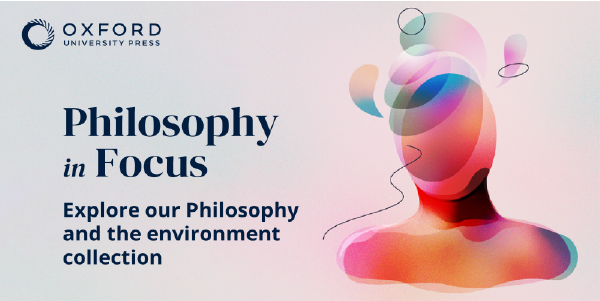Ukraine/Russia Open Thread
This post is for the discussion of various aspects of Russia’s war on Ukraine, as well as links to various materials, including (but not limited to) commentary from philosophers and other scholars, interviews and news reports of interest, resources for following developments, measures taken to assist Ukrainian scholars and others, and so on.
![]()
Here are some links to commentary by philosophers:
- Philosophers On The Russian Attack On Ukraine — commentary from Saba Bazargan-Forward, Jovana Davidovic, Christopher J. Finlay, and Helen Frowe. (Spanish translation. Czech translation.)
- Commentary from several philosophers on various aspects of the Russian attack on Ukraine — including Janina Dill, Helen Frowe, Jeff McMahan, Massimo Renzo, Zofia Stemplowska, and Elad Uzan (text)
- Philosophers discuss the Russian invasion of Ukraine at Oxford — with Jeff McMahan, Janina Dill, Helen Frowe, Massimo Renzo, Zofia Stemplwoska, and Elad Uzan (video)
- “Hope is needed most exactly when the world looks hopeless” — Lea Ypi (LSE) on hope, humanity, Russia, Ukraine, and what can be learned from Kant’s Perpetual Peace
- Ukraine, Russia, and philosophy — philosopher Michelle Panchuk (Murray State), who has lived in Ukraine and has family there, is interviewed by J. Aaron Simmons (Furman) on the conflict and its lessons
- “This is a threat to all of us” — Jeff McMahan (Oxford) interviewed about the Russian attack on Ukraine
Philosophy-related support and assistance:
General assistance:
—
Discussions, links, suggestions welcome.



At Ethics & International Affairs we’ve posted a series on the distinct ethical issues arising from the conflict (sanctions, humanitarian aid, moral emotions, etc.) by philosophers, political scientists, and others.
A piece I wrote for iai News discussing the very possibility of a just war, using the conflict in Ukraine as an example. (I didn’t pick the unfortunate title of the article).
Great discussion.
I’d like to suggest two excellent sources—blogs—for reliable analysis and commentary about Russia’s war in Ukraine by first-rate scholars of international law and politics:
• EJIL: Talk! (European Journal of International Law) https://www.ejiltalk.org/
• Just Security https://www.justsecurity.org/
Occasionally the Opinio Juris blog also has relevant posts: http://opiniojuris.org/
And those philosophers and students of philosophy who are thinking about what is happening in Ukraine in light of Just War philosophy and international criminal law, should familiarize themselves (if they have not already) with the works of Larry May, perhaps our foremost philosopher when it comes to international criminal law (which is at the same time cognizant of the Just War tradition). I would add that two books by another brilliant philosopher, Allen Buchanan, stand apart and complement May’s work; although they are not about international criminal law they treats topics that overlap with May’s arguments when not providing some measure of support for them: Justice, Legitimacy, and Self-Determination: Moral Foundations for International Law (Oxford University Press, 2004), and The Heart of Human Rights (Oxford University Press, 2013).
• May, Larry (1987) The Morality of Groups: Collective Responsibility, Group-Base Harm, and Corporate Rights. Notre Dame, IN: University of Notre Dame Press.
• May, Larry (1992) Sharing Responsibility. Chicago, IL: University of Chicago Press.
• May, Larry (2005) Crimes Against Humanity: A Normative Account. Cambridge, UK: Cambridge University Press.
• May, Larry (2007) War Crimes and Just War. Cambridge, UK: Cambridge University Press.
• May, Larry (2008) Aggression and Crimes against Peace. Cambridge, UK: Cambridge University Press.
• May, Larry (2010) Genocide: A Normative Account. Cambridge, UK: Cambridge University Press.
• May, Larry (2011) Global Justice and Due Process. New York: Cambridge University Press.
• May, Larry (2012) After War Ends: A Philosophical Perspective. New York: Cambridge University Press.
• May, Larry (2015). Contingent Pacifism: Revisiting Just War Theory. Cambridge, UK: Cambridge University Press.
• May, Larry and Zachary Hoskins, eds. (2010) International Criminal Law and Philosophy. Cambridge, UK: Cambridge University Press.
As some of our parents taught us, two wrongs don’t make a right, but political rhetoric and commentary from journalists, pundits and the chattering classes more generally in the mass media should inform us of relevant history on this score, for example the fact that the crime of aggression (and crimes against peace) and war crimes during and since World War II have often been committed by Liberal democracies like the U.S., France, and Great Britain (and NATO). This rhetoric reeks of self-righteous and holier-than-thou posturing and a corresponding attitude that lends itself to demonization of all-things-Russian and infliction (through indiscriminate sanctions) of suffering on people in Russia who are virtually powerless to change the status quo. I recently posted on this within the parameters of what has correctly been termed “victors’ justice:” https://www.religiousleftlaw.com/2022/03/beyond-victors-justicethe-need-and-value-of-international-criminal-justice-and-law.html
Finally, readers might find two of my compilations useful should they be doing any further research or be curious about the relevant literature in international law:
• International Criminal Law: https://www.academia.edu/4844070/International_Criminal_Law_bibliography
• Violent Conflict and The Laws of War—Moral, Legal, and Political Dimensions: https://www.academia.edu/5179203/Violent_Conflict_and_The_Laws_of_War_Moral_Legal_and_Political_Dimensions_A_Select_Bibliography
I’m an Ukrainian in Lviv and with a refugee wife and son in Poland. I invite everyone to follow me and my stories.
twitter: @vikvkravchuk
https://www.buymeacoffee.com/vikvkravchuk
Best,
Vik